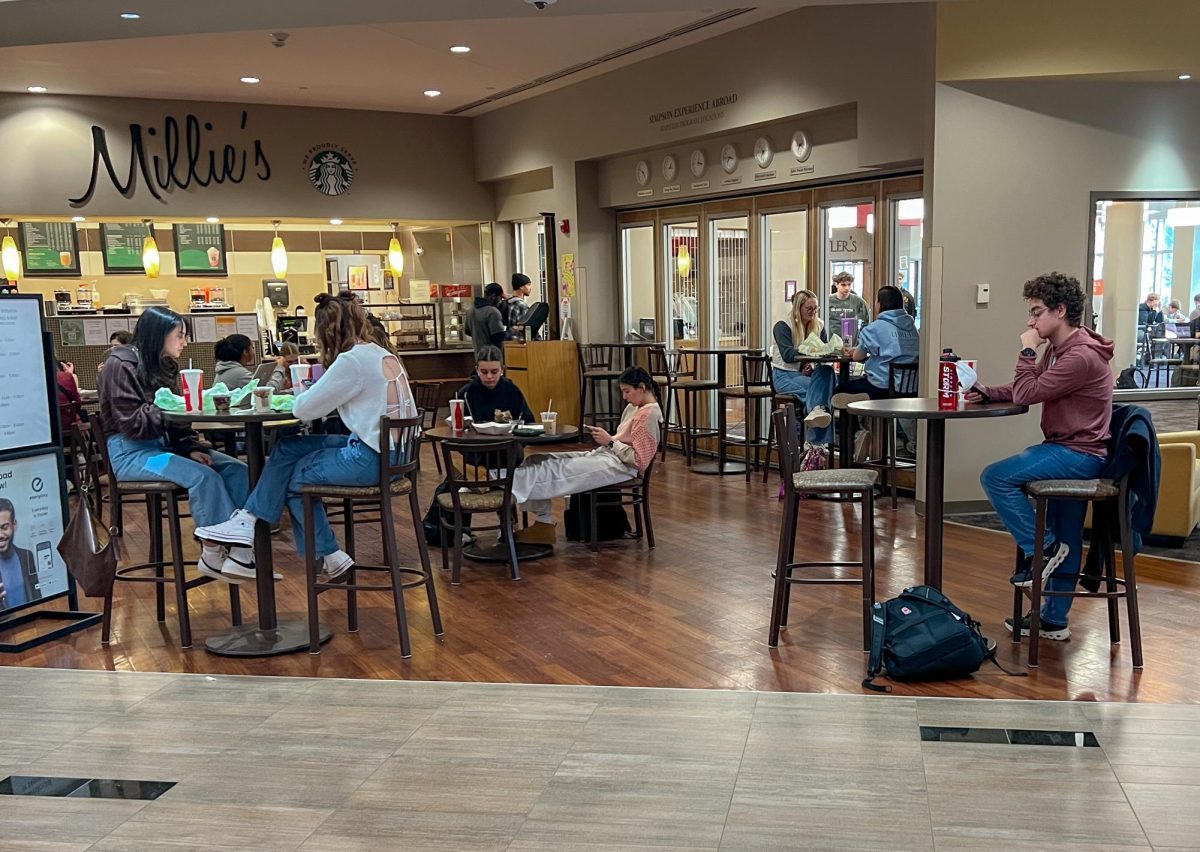Walking into Kent Campus Center, it’s common to see groups of friends eating lunch or drinking coffee together, but it’s also common to see most of them on their phones. Even outside, the sidewalks are full of students looking down at their devices as they make their way around campus. Constant phone usage is the norm.
While in conversation with his friends, Moises Gonzalez Garcia, a sophomore computer science major, notices most of them can’t go more than 20 seconds without pulling their phones out. He mentioned that sometimes his friends will look down at their phone screens the whole time they talk, and it’s like they’re not paying attention to a single thing he’s saying.
“They’re just like clocking out. You’re basically cutting people off, like ‘I’m here, but since my phone is out, I’m saying don’t talk to me. I’m kind of out of this conversation now,’” Gonzalez Garcia said.
Gonzalez Garcia recently turned off most of his notifications because he doesn’t like feeling the need to check his phone at every buzz. He wants to be present when spending time with his friends.
Katelyn Puderbaugh, a junior marketing communication major, does equestrian sports, bow hunts, knits, reads, plays guitar and many other hobbies in her free time. She didn’t feel the need to use social media and didn’t have any until she came to college. She quickly realized its addicting properties, finding herself doomscrolling on Instagram Reels a few times a day.
“If I get bored or something, I feel the need to kind of like look at it. I have felt more anxious since I’ve had [Instagram], and I never felt that way before I had it,” Puderbaugh said.
Caden Kingery, student body vice president and junior studying history and second education, has a one-hour screen time limit on his phone, and due to this, he’s noticed he is a lot more attentive to everything going on around him. Kingery not only sees many of his peers on their phones but also notices them shopping, playing games, checking social media and watching videos on their laptops in class.
“It just kind of makes me wonder, like, why they’re here because you’re paying a lot of money to go here to learn,” he said. “That is not optimizing your learning at all, and it seems pretty disrespectful and dishonest to the professor.”
Lauren Points, assistant professor of biology, used to have an electronics-free policy in her classroom. Now, she has phone-free brain breaks midway through class to allow students to stretch, process the lecture and reset. She puts her phone and smart watch away to model her commitment to her students, but as the semester progresses, she sees students pick up their phones more and more.
“I wish they would interact with each other and talk to each other about either the material, the lecture material or what’s going on that evening. I just want to get some more of that organic conversation between people who are standing next to each other,” Points said. “Students have a lot more in common with each other in their environment; I would like to encourage them to interact with each other.”
Kingery admitted, “I think if people had phone-free or technology-free areas, it would make them kind of realize how much that impacts the other aspects of their life.”
Gonzalez Garcia, like Kingery, wishes there were more areas on campus where phones were not constantly present.
“Everybody imagines college before they go. There are people outside throwing frisbees, reading, picnics … I feel like it’s just not that here,” Gonzalez Garcia said.
Puderbaugh thinks her peers should be more open to what’s around them, stating, “You only get one life, and you know, spend it doing the most craziest things you can think of, something you’ve never thought that you’d do.”










